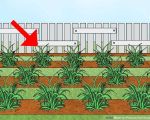Understanding the Weed Problem in Your Lawn
Weeds are the bane of every homeowner with a lawn. I know firsthand how frustrating it can be when weeds start taking over, ruining the beautiful green carpet you’ve worked so hard to maintain. It all begins subtly, with a few dandelions or clover patches sneaking through, but before you know it, your lawn is overwhelmed with weeds that compete with your grass for nutrients, water, and sunlight.
What Makes Weeds Such a Problem?
Weeds are persistent and adaptable, which is why they can quickly become a major issue in your lawn. Unlike grass, which often requires regular care, weeds can grow in various soil conditions, weather, and environments. They tend to spread rapidly and, once established, can be tough to remove. Some even produce seeds that can travel long distances, making it even harder to keep them under control.
Effective Methods to Prevent Weeds from Taking Over
Over the years, I’ve found that there are several key strategies to keep weeds at bay and maintain a healthy, green lawn. With a little dedication and the right techniques, you can prevent weeds from overtaking your yard entirely.
1. Maintain Healthy Grass with Proper Lawn Care
One of the best ways to prevent weeds from growing in your lawn is to keep your grass healthy and strong. Healthy grass will naturally outcompete weeds for space, nutrients, and sunlight. I always make sure to provide my lawn with the basics: proper watering, adequate fertilization, and regular mowing.
Watering deeply but infrequently helps grass roots grow deep into the soil, making them more resistant to drought and less likely to be affected by weeds. Also, avoid over-watering, which can lead to shallow roots that make your lawn more susceptible to weeds. Fertilizing your lawn regularly with the right nutrients, depending on the season and type of grass, gives your lawn the strength to fight off weed invasions.
2. Mow Your Lawn Properly
Mowing your lawn at the right height is crucial for keeping weeds under control. If you cut your grass too short, it can stress the lawn, allowing weeds to grow more easily. On the other hand, letting the grass grow too long can provide more space for weeds to take root. For most grass types, keeping the lawn at a height of 2.5 to 3 inches is ideal. This height promotes healthy growth while shading out weeds and preventing them from germinating.
3. Apply Pre-emergent Herbicides
Pre-emergent herbicides are an excellent tool for preventing weed seeds from germinating in your lawn. I use a pre-emergent herbicide in early spring, right before the weed seeds start to sprout. The herbicide works by forming a barrier in the soil that prevents weed seeds from taking root. This is particularly effective against common weeds like crabgrass and dandelions.
Make sure to apply the herbicide before the weeds have begun to grow. If you wait too long, it won’t be effective. Be careful to choose a pre-emergent herbicide that won’t harm your grass, as some products may affect certain types of lawns.
4. Use Post-emergent Herbicides for Established Weeds
If weeds have already made their way into your lawn, post-emergent herbicides can help tackle the problem. These herbicides are designed to target weeds that have already germinated and are actively growing. I typically apply post-emergent herbicides on a dry, sunny day to ensure the product works effectively. Be sure to follow the instructions carefully to avoid damaging your grass.
There are two types of post-emergent herbicides: selective and non-selective. Selective herbicides target specific weeds, leaving your grass unharmed, while non-selective herbicides kill everything in their path, including grass. I prefer selective herbicides, as they allow me to spot treat specific areas without harming the rest of my lawn.
5. Mulch and Use Landscape Fabric Around Your Lawn
If you have flower beds or garden borders near your lawn, mulching and using landscape fabric can help prevent weeds from infiltrating your lawn. I always make sure to add a thick layer of mulch around my garden plants to prevent weeds from sprouting up in the first place. Landscape fabric underneath the mulch also helps prevent weed growth by blocking sunlight and preventing seeds from reaching the soil.
6. Hand-pull Weeds Regularly
Despite all the preventative measures, weeds will still pop up now and then. I find that pulling weeds by hand is often the most effective way to deal with them. It’s important to remove the weeds before they go to seed to avoid spreading them further. When pulling weeds, make sure to get the entire root, as many weeds can regenerate from leftover roots in the soil.
I prefer to pull weeds when the soil is moist, as it’s easier to remove them entirely. I also make sure to wear gloves to protect my hands from thorns or irritating plants like poison ivy.
Natural Methods for Weed Control
If you prefer a more organic approach to weed control, there are plenty of natural methods that work just as well as chemical herbicides. I’ve used a few different natural solutions over the years with great success.
7. Vinegar and Salt Solution
One of my go-to natural remedies is a mixture of vinegar and salt. This solution works well for spot treating weeds in walkways, driveways, and other non-lawn areas. The acetic acid in the vinegar dries out the weeds, while the salt disrupts the weed’s ability to absorb water. Just be careful not to apply it to your lawn, as it can harm your grass.
8. Boiling Water
Boiling water is another simple and natural way to kill weeds. I’ve used this method to target weeds in my garden paths and cracks in the driveway. Simply pour the boiling water directly onto the weeds to burn them away. It’s a quick and effective method, though it requires some caution to avoid burns.
9. Corn Gluten Meal
Corn gluten meal is a natural pre-emergent herbicide that can help prevent weeds from sprouting in your lawn. I apply it in early spring before the weeds have a chance to germinate. In addition to preventing weed seeds from growing, it also provides a mild fertilizer for my lawn. Just make sure to apply it evenly and follow the manufacturer’s instructions for the best results.
Why Professional Lawn Care Services Can Help
While I enjoy taking care of my lawn myself, I know that not everyone has the time, energy, or expertise to deal with weed control effectively. If you’re struggling with weeds or want to ensure your lawn stays in top condition year-round, I highly recommend seeking professional lawn care services. Experts can offer tailored advice and treatments that are specific to your lawn’s needs, making it easier to keep your yard weed-free and beautiful.








